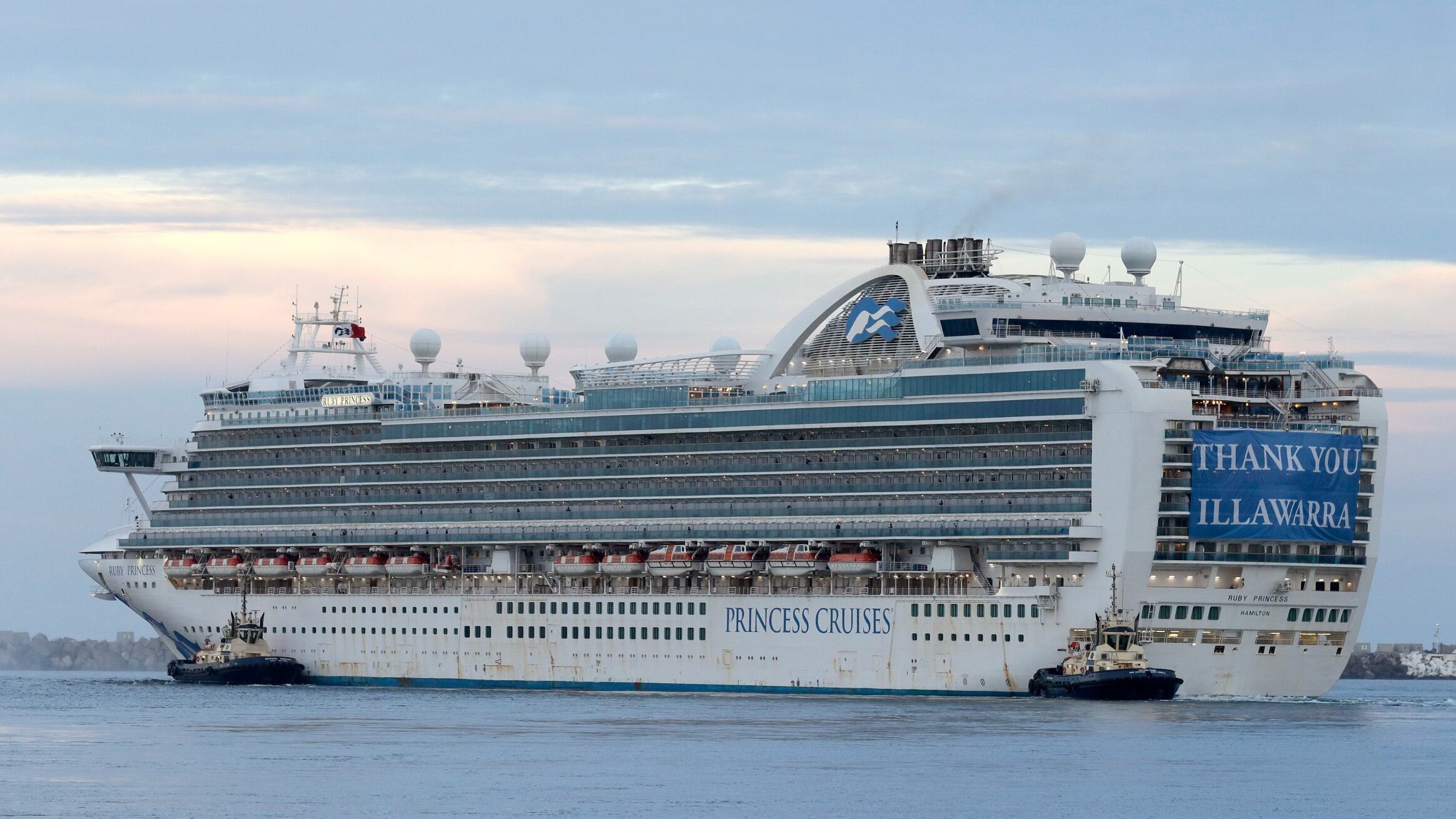By Rod McGuirk
A cruise operator that failed to cancel a voyage from Sydney that led to a major COVID-19 outbreak was ruled negligent in its duty of care to passengers in an Australian class-action case Wednesday.
The Ruby Princess ocean liner left Sydney on March 8, 2020, with 2,671 passengers aboard for a 13-day cruise to New Zealand but returned in 11 days as Australia’s borders were closing. COVID-19 spread to 663 passengers and claimed 28 lives.
Passenger Susan Karpik was the lead plaintiff in the case against British-American cruise operator Carnival and its subsidiary Princess Cruises, the ship's owner.
Federal Court Justice Angus Stewart ruled that Carnival had been negligent as defined by Australian consumer law by allowing the cruise to depart in the early months of the pandemic. He said Carnival had a duty to take reasonable care of her health and safety in regard to COVID-19.
“I have found that before the embarkation of passengers on the Ruby Princess for the cruise in question, the respondents knew or ought to have known about the heightened risk of coronavirus infection on the vessel and its potentially lethal consequences and that their procedures for screening passengers and crew members for the virus were unlikely to screen out all infectious individuals,” Stewart said.
Carnival had already experienced outbreaks on its cruises in the previous month aboard the Grand Princess off California and the Diamond Princess off Japan, the judge said.
Carnival had failed to explain why it offered free cancellation for all cruises worldwide leaving from March 9 — the day after the Ruby Princess departed — and suspended all cruises on March 13, he said.
“To the respondents’ knowledge, to proceed with the cruise carried significant risk of a coronavirus outbreak with possible disastrous consequences, yet they proceeded regardless,” Stewart said.
Susan Karpik had sued Carnival for more than 360,000 Australian dollars ($230,000).
However, she was only awarded her out-of-pocket medical expenses of AU$4,423.48 ($2,823.28) for reasons including that the judge did not accept she suffered from long COVID and that Carnival had refunded all the passengers’ fares.
But she said she was happy with the outcome.
“I was very pleased with that finding. And I hope the other passengers are pleased with that finding too,” she told reporters outside court.
“I hope the finding brings some comfort to them because they’ve all been through the mill and back,” she added.
Her lawyer Vicky Antzoulatos said other passengers who suffered worse consequences from their sickness could expect larger payouts.
While Susan Karpik's symptoms were relatively mild, her husband Henry Karpik spent two months in hospital and almost died from his infection.
“Susan’s husband was very catastrophically injured, so we expect that he will have a substantial claim, and that will be the same for a number of the passengers on the ship,” Antzoulatos said.
Each passenger will have to prove their claims unless Carnival agrees to settle, she said.
“It’s been a long time coming and a very comprehensive victory for the passengers on the Ruby Princess,” Antzoulatos said.
Carnival Australia said in a statement it was considering the judgment in detail.
“The pandemic was a difficult time in Australia’s history, and we understand how heartbreaking it was for those affected,” Carnival said.













